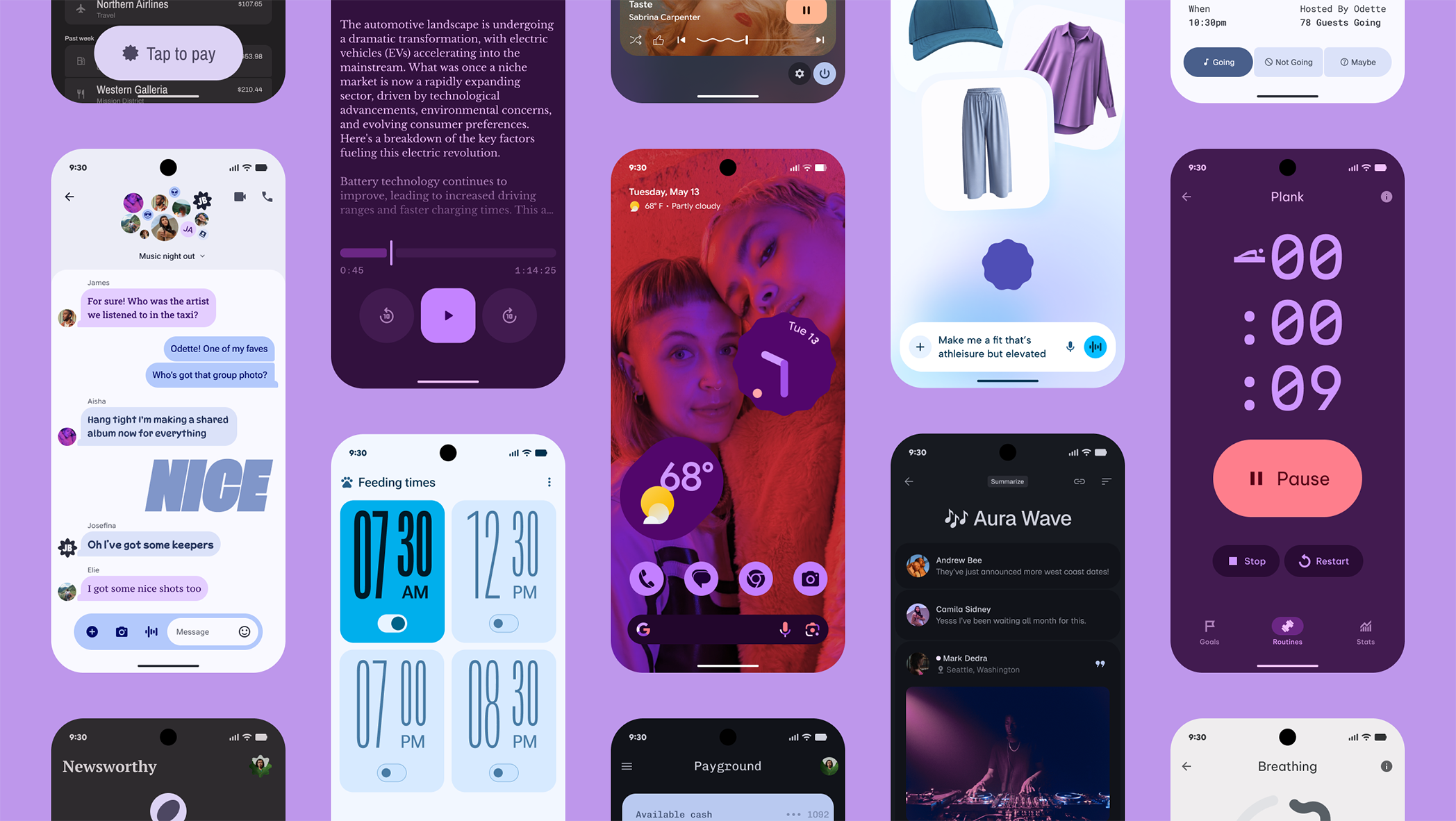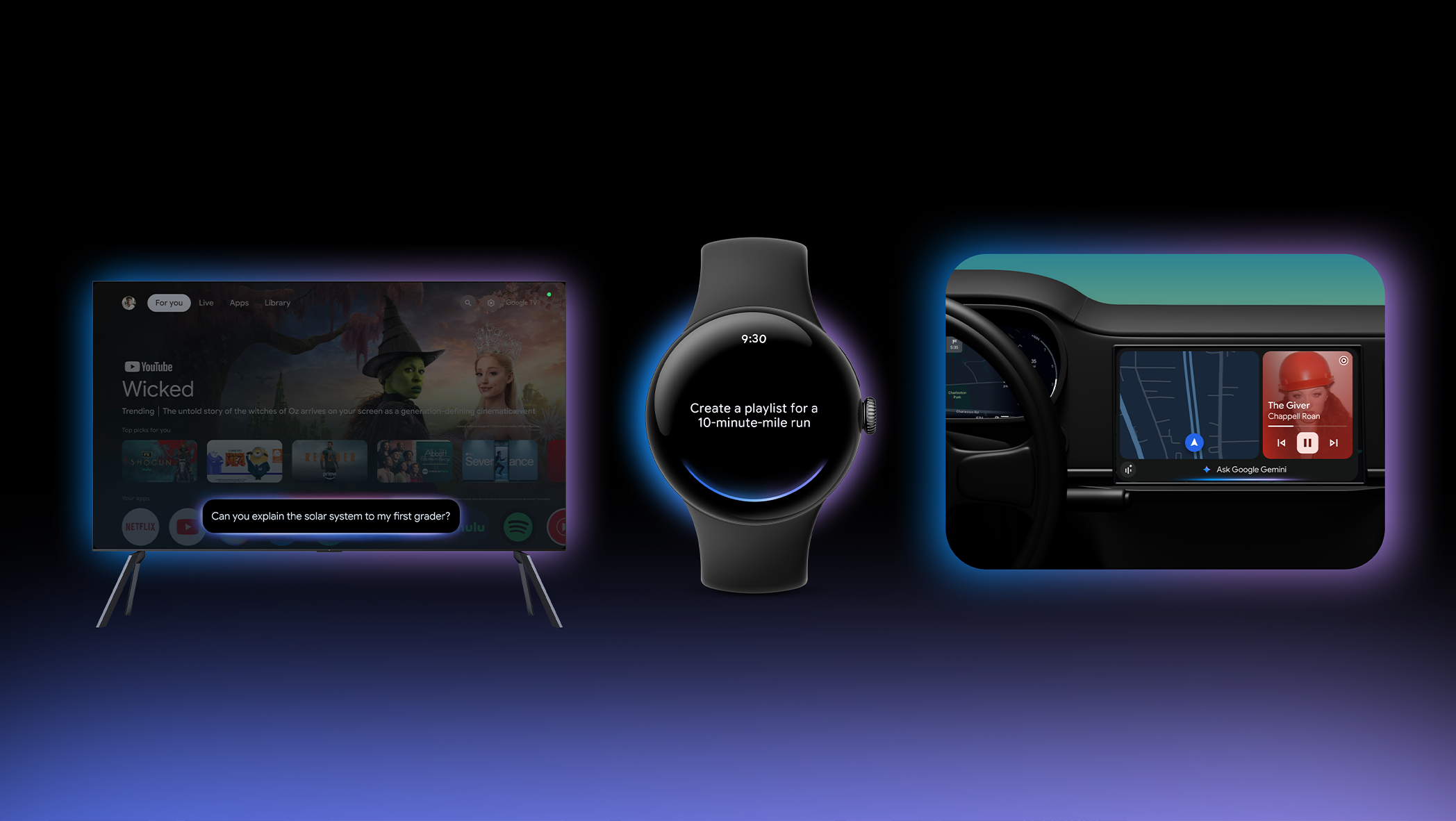Unfortunately, Google will continue to make us wait for it. Also, Gemini is now in everything, whether you want it or not.


Google I/O 2025 may be around the corner, but if you're a faithful Android user—you are, that's why you're here—Google announced everything you need to know today during The Android Show, I/O Edition.
Google revealed a new look coming to the Android platform. Material 3 Expressive is the next iteration of Google's Material design. It will join several other significant improvements to the operating system, including Gemini taking over all facets of Google's existence in your tech life, from your smartwatch to your car. The company also pulled an Apple-like maneuver with the Find My Hub, an almost direct copy-and-paste of iOS's Find My app. Could this, plus the minor improvements to messaging protocols like RCS, be the siren call that gets users out of the walled garden and into the green bubble? Time will tell. For now, here's what's coming to your Android phone later this year.
Material 3 Expressive is the name of the new look and feel of Android 16. It's punchy and vibrant and features new fonts and improved interface elements. There are new buttons to press, and even the toolbars have undergone some construction. It all looks very nice and modern, and, as discussed on last week's Android Show, it's extremely Gen Z coded.
If you ask Google, Material 3 Expressive is more than an aesthetic upgrade. The design was constructed around adding "emotion" to the user interface. It should resonate subtly with animations that feel "natural" and light haptic feedback for typical interactions, like when dismissing a notification. Backgrounds are blurred when there's an app in focus to help keep your attention. The home screen grid and quick settings panel have also been reworked, with added bits like animated feedback as you tap to change a setting.
Taking a page from the iPhone's Dynamic Island, Android now has an element called Live Updates. It's for apps where you can track progress, like food delivery, ridesharing, and navigation. I didn't think to ask Google whether this would expand to include oft-tracked elements like live sports scores, which iOS's Dynamic Island can do. But something like this could go beyond Uber Eats as it grows.
The Material 3 Expressive design paradigm will be applied across Android's core apps, including Google Photos, Fitbit, and Gmail. Beyond fancy renderings, we'll have to continue waiting before it's available on devices to paw at. Material 3 Expressive doesn't launch until the fall.
Want more on Material 3 Expressive? Jason Howell walks us through the new look and feel of Android 16:

We know this was coming, but this makes it official. Google is bringing Gemini to every part of its product lineup, from the TV in your living room to the car you drive daily to that doldrum job.
First, expect Gemini to roll out to the car in the coming months. It will effectively replace the Google Assistant and become your hands-free concierge behind the wheel. Gemini will summarize messages for you and find things you need along your route. You can also tap into Gemini Live while you're stuck in traffic to get briefed on emails and messages.
Gemini will also debut on Wear OS as a handy wrist companion in the coming months. For the Gen Xers and elder millennials in the room, imagine yourself as Inspector Gadget talking to his watch because that is what you will look like to other people.
Later this year, Google TV will also get its Gemini boost. It will allow you to have a more contextual conversation about what to watch, for instance, with the ability to be way more specific than you could have been with the Google Assistant.
Oh, remember Android XR? Google hasn't forgotten about that (it can't, Samsung is hedging its bets on it). Gemini will reach the headset once it exists, though I'm having more trouble visualizing this one since I'm still not entirely clear on the overall objective of Android XR. Hopefully, Samsung will help reveal that when its Project Moohan XR headset comes to fruition.
I can't be the only person who saw the Find Hub and immediately thought about the same app that's available for iOS users, called Find My. It's about time Google launched something similar for Android users, especially with all these trackers available now. Find Hub is the one-stop shop for everything you're tracking, whether a person, an Android device, or a tracker on a set of keys. Later this year, Find Hub will also integrate satellite connectivity so you can reach out and let folks at base camp know you're okay even without a cellular connection. And like Apple's AirTags, you'll be able to share the details of a luggage tracker with select airlines.
Most of what Google is showing off that's new with Android isn't available yet. We'll hopefully get a chance to play with Material 3 Expressive in person at Google I/O next week. Until then, you can look through Google's many posts summarizing what's new. Let us know what you want us to check out first.